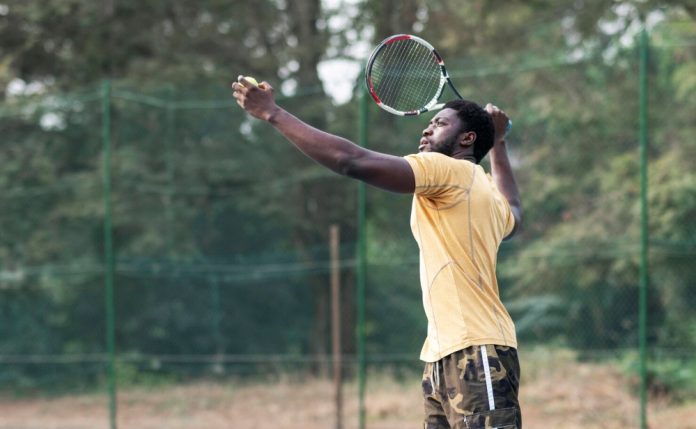Kenya is at a turning point in its sporting experience. As a world brand in athletics already, the country wants to become an international sports events and investment destination. From top-class stadiums to multi-purpose venues and training facilities, Kenya’s focus has shifted to green sports infrastructure that induces national pride and economic growth.
Government and private investors see the potential: every match, marathon, and event can generate business potential in tourism, broadcasting, and internet betting. As the international platform Melbet casino, known for its wide range of online casino games and live dealer options, continues to expand into African markets, entertainment, betting, and sports infrastructure linkages grow more powerful. Such platforms not only enable the interest of fans in casino activity but also help shape the financial sphere around modern sport.
The Current State of Sport Facilities in Kenya
Kenya’s sports development story has never been one of enthusiasm and not finances. The nation’s old stadiums, like the Moi International Sports Centre, Kasarani, have seen countless iconic moments, but times could no longer remain static. The turning point has finally come with several megaprojects in the works to take Kenyan stadiums to global standards.
This shift is not happening in isolation. The growing partnership between private capital and public powers has created new opportunities. Sports facilities are being viewed by gaming brands and entertainment companies, including Betpawa, as fueling fan enthusiasm and driving national identity. Through sponsoring domestic leagues and providing wagering technology, they fill a gap which can both drive engagement and returns — a double dividend for communities and the broader economy.
Kenya’s sports infrastructure has moved beyond facilities; it’s about designing an ecosystem that bridges the pitch, fans, and digital experience into one unified flow.
Big Upcoming Projects and Their Economic Impact
Before going into the specifics of investment strategies, it’s worth looking at the flagship projects that shape Kenya’s new sports vision.
| Project | Location | Expected Completion | Estimated Cost (USD) | Key Benefit |
| Talanta Sports City | Nairobi | 2026 | 350 million | Multipurpose complex for sports, concerts, and conferences |
| Kipchoge Keino Stadium Expansion | Eldoret | 2025 | 60 million | Enhances sports performance and tourism worth |
| Mombasa Arena Complex | Mombasa | 2027 | 120 million | Football and entertainment events, coastal hub |
| Nakuru Sports Village | Nakuru | 2026 | 80 million | Enhances football leagues in the domestic region and community accessibility |
These projects represent Kenya’s commitment to economic transformation via sport. Each of these venues is not only for hosting major competitions but also to attract investors, tourists, and brands that appreciate visibility and engagement.
New sports venues will bring jobs, stimulate small businesses, and revitalize the local economy — with impacts reaching far beyond the stadium gates.
Why Investors Are Flocking to Kenya’s Sports Industry
Sports are increasingly being viewed as a strategic sector for investment in East Africa. Kenya’s youthful population, global reputation in athletics, and newly established professional leagues have produced a wonderful chance to grow.
Investors are drawn to four major drivers that transform Kenya into a sports finance and infrastructure leader of the future:
- Young Market: Kenya possesses a young and tech-savvy market with passionate fans eager for live and digital sports consumption.
- Event Tourism: Local and international events attract tourists who spend money on transportation, food, and accommodations, making the tourism sector thrive.
- Digital Growth: Streaming, ticketing, and big data analytics enhance fan experience and monetization opportunities.
- Government Support: Public-private partnerships and tax breaks spur long-term investment in sporting development.
In the not-too-distant future, Kenya could be a central hub in the sporting activity of East Africa — with infrastructure, professional expertise, and a booming economy to host large-scale competitions.
The Best Football Betting Sites in Kenya
Challenges and Long-Term Opportunities
Although the vision is ambitious, Kenya must overcome certain structural challenges. Maintenance, transparency, and accessibility remain concerns. Past infrastructure development has been marred by cost overruns or underachievement, but the current wave emphasizes sustainability and accountability.
Foreign investment has also introduced lessons from countries that were able to effectively make sports economic drivers. Kenya’s strategy now incorporates innovation, education, and community emphasis to allow facilities to stay busy and profitable year-round.
The long-term potential is enormous: hosting international competition, establishing sports schools, and using digital technologies to enhance performance analysis and fan experiences. Kenya’s ability to balance growth with sustainability will determine if it will be a continental model of success in sports infrastructure.
The Road Ahead: Blending Tradition with Innovation
Kenya’s athletic and football heritage is venturing into the digital age. The country’s success today is not a matter of how far it goes but how well it blends tradition and innovation. From world-class tracks to new football schools, the intersection of investment, technology, and vision is building an era of excellence and possibility.
While investors venture into the Kenyan market, optimism rises that success will go beyond economic gains. Sport has the power to unite people, propel tourism, and get Kenya’s brand onto the world map. The desire is no longer to produce champions in isolation — it’s to produce a lasting ecosystem that brings them up.
A Nation on the Move
Kenya is firmly on its way to becoming one of Africa’s future sporting capitals. A combination of masterful infrastructure development, private finance, and passion for sport has set the stage for a revolution that extends far beyond running.
The struggle to keep up with modernity is already being won, and with each new stadium constructed and event hosted, Kenya is closer to its dream — a sustainable, successful sports economy that invites the world and ignites national pride.









